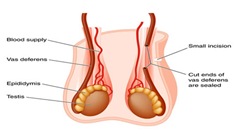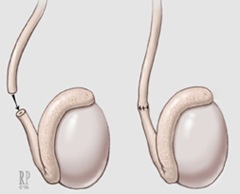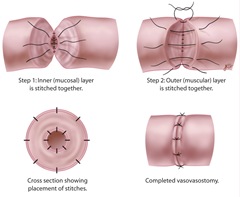What are the factors influencing the outcome of vasectomy reversals? Vasectomy reversal is a transformative procedure that restores fertility for individuals who have previously undergone a vasectomy. Understanding the success rates of and the factors that can influence the outcome is crucial for individuals considering this procedure. In this blog, we will explore vasectomy reversal and the key factors that play a role in achieving optimal results. Dr. Yaniv Larish, an experienced urologist specializing in vasectomy reversal, can provide expert insights and personalized guidance based on his extensive knowledge and expertise in the field.

Success Rates of the Vasectomy Reversal
The success rates of vasectomy reversal are influenced by various factors, including the time elapsed since the vasectomy, the specific surgical technique used, the experience of the surgeon, and the individual’s overall health and fertility factors. On average, vasectomy reversal procedures have shown success rates ranging from 40% to 90%, with the highest success rates seen within the first 10 years following the initial vasectomy. However, it’s important to note that success rates can vary based on individual circumstances.
Factors Influencing the Outcome
Several factors can influence the success of a vasectomy reversal procedure. These include:
- Time Since Vasectomy: Generally, the success rates tend to be higher for individuals who undergo vasectomy reversal within the first 10 years after their initial vasectomy. However, successful outcomes can still be achieved even after a longer period.
- Surgical Technique: The choice of surgical technique, whether it’s vasovasostomy or vasoepididymostomy, depends on the specific circumstances of the individual. Factors such as the presence of blockages or scarring in the vas deferens impact the choice of technique and subsequent success rates.
- Surgeon’s Experience: The skill and experience of the microsurgeon performing the vasectomy reversal significantly influence the success rates. Choosing a highly experienced and specialized urologist can improve the likelihood of achieving optimal results.
- Individual Factors: Factors such as overall health, age, and fertility of both partners also contribute to the success rates. Other underlying fertility issues in either partner may affect the outcome, and a thorough evaluation will help determine the best course of action.
 Factors Influencing Outcome of Vasectomy Reversals: Personalized Guidance for Optimal Results
Factors Influencing Outcome of Vasectomy Reversals: Personalized Guidance for Optimal Results
Every individual considering vasectomy reversal is unique, and the success of the procedure depends on various factors. An experienced specialist will provide personalized guidance and expertise to assess each patient’s specific circumstances and maximize the chances of achieving successful outcomes. Through a comprehensive evaluation, your doctor will discuss the success rates associated with vasectomy reversal and address any concerns or questions to ensure patients are well-informed and confident in the decision-making process.
Factors Influencing Outcome of Vasectomy Reversals: Contact an Expert
Understanding the success rates of vasectomy reversal and the factors that influence the outcome is essential for individuals considering this transformative procedure. With Dr. Yaniv Larish’s expertise and personalized care, patients can receive the guidance and support needed to navigate the journey of vasectomy reversal and increase their chances of achieving successful outcomes.
To learn more about vasectomy reversal success rates and discuss your specific circumstances, schedule a consultation with Dr. Yaniv Larish today:
Yaniv Larish, MD
4 East 76th Street
New York, NY 10021
Phone: (646) 862-5500



